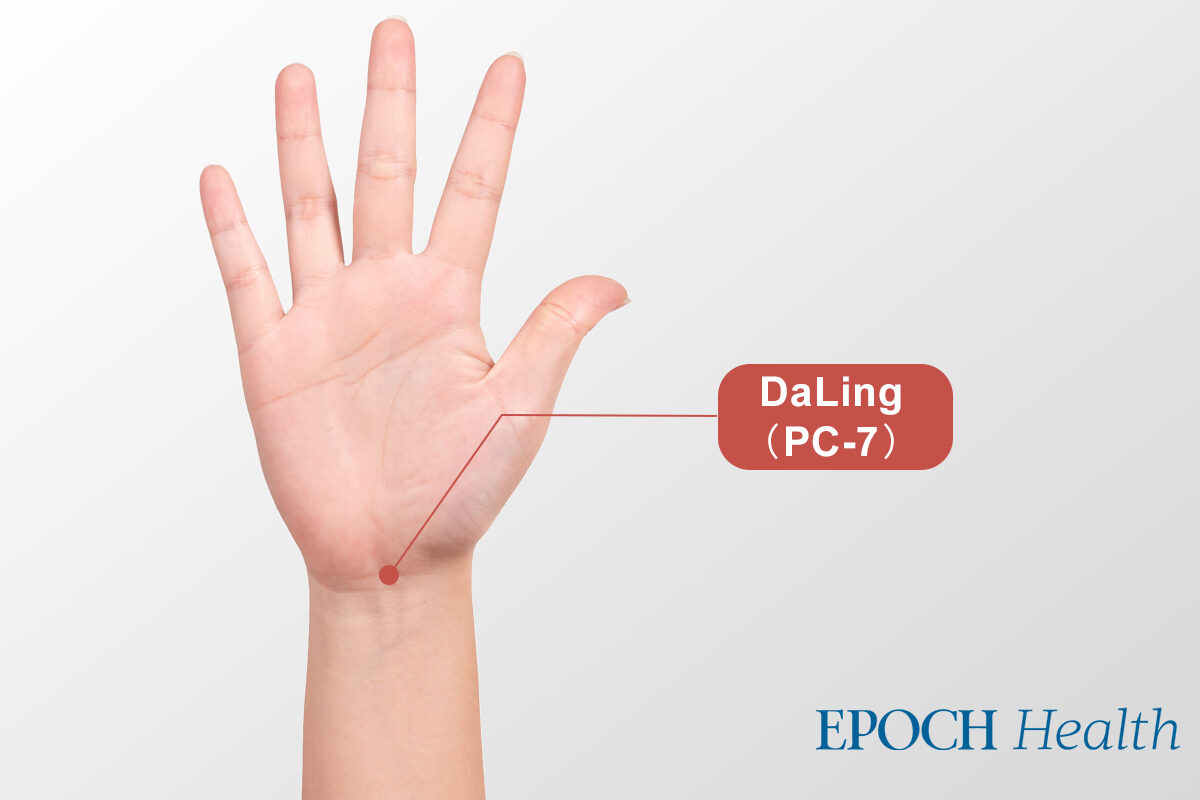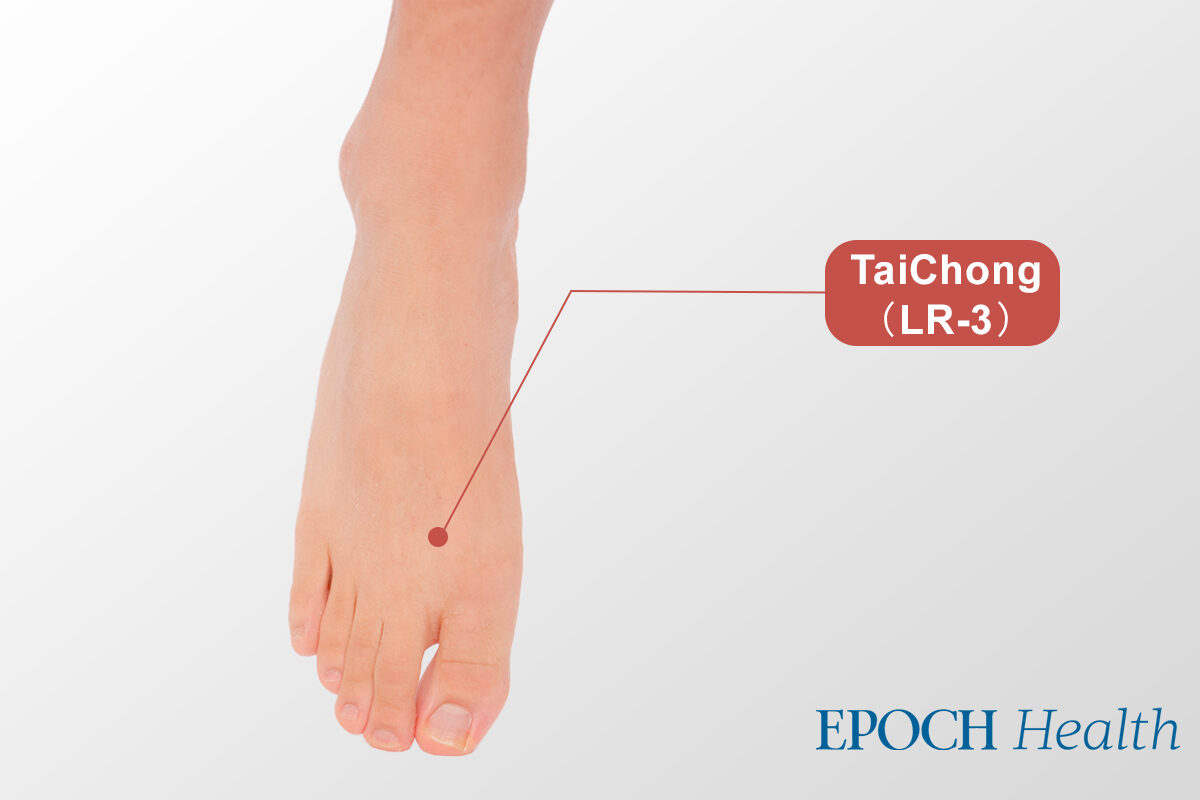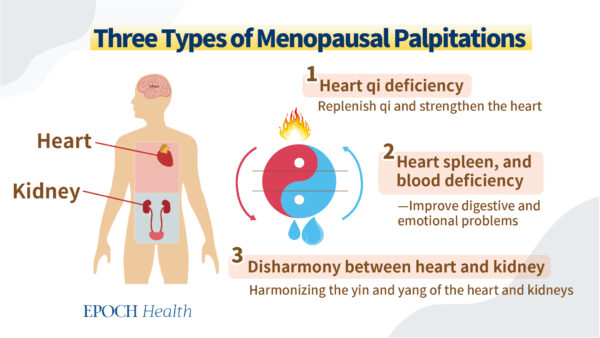Menopause is a significant physiological change in a woman’s life, typically caused by Onset between ages 45 and 55Unfortunately, the discomfort associated with menopause can last 7 to 14 years. How can a woman ease her discomfort during this time?
Dr. Li Jialing, director of the Aroma Traditional Chinese Medicine Clinic in Taiwan and dual certified aromatherapist by the American Holistic Aromatherapy Association and the International Federation of Aromatherapists in the United Kingdom, recently described the program “Health 1+”. Did. 1” shows how aromatherapy can be used to address the various discomforts of menopause.
According to Li, according to ancient Chinese medicine classics, menopause usually begins at age 49 for women and 56 for men.
The main symptoms of menopause in women include vasodilatory symptoms such as hot flashes and night sweats, genitourinary problems such as sexual dysfunction and vaginal dryness, cognitive decline, mood changes and psychiatric symptoms such as insomnia. There are physical problems such as symptoms, osteoporosis and sarcopenia. Cardiovascular disease, cancer. How can these issues be addressed?
Alleviates red and hot flashes
Menopausal women often experience the discomfort of hot flashes. They are usually short-lived flare-ups, sometimes accompanied by night sweats and heart weakness.
According to Li, Traditional Chinese Medicine (TCM) divides hot flashes into five types, each caused by a different factor.
1. Excess Yomeifu organ pattern: Yomeifu syndrome With internal accumulation, it causes abdominal pain and bloating with constipation. The fire and heat cause fluids to overflow and the patient to sweat. Hot flashes occur between 3:00 and 5:00 pm and are often accompanied by constipation.
2. Yin and blood deficiency: Associated with hormonal and endocrine changes. These hot flashes usually occur in the afternoon or at night and can be felt on the palms, feet, and chest.
3. Spleen and Stomach Qi Deficiency: Hot flashes can occur in the morning and subside in the afternoon, or they can occur in the afternoon when you are too tired to talk.
4. Qi consumed in summer heat: Hot flashes occur when it’s hot in the morning and cold in the evening, and are accompanied by irritability and fatigue.
5. Congestion in the body: Hot flashes occur in the afternoon or at night and are accompanied by thirst. The tongue and face may also appear dark and stagnant.
Li recommended pressing two acupuncture points to reduce hot flashes: Daling (PC 7) for the pericardial meridian and Taichong (LR 3) for the liver meridian. He suggested consuming collagen-rich, heat-reducing foods such as black mold, sweet potato leaves, okra, sea cucumbers, and swallow nests*.
According to TCM, meridians are the pathways through which energy flows through the human body, facilitating the transport of “qi” (life energy) and blood throughout the body. increase.
There are 12 major meridians in the human body, each corresponding to an internal organ. These organs are connected to the surface of the body through meridians. Acupuncture points are special acupuncture points on meridians that are believed to be stimulated by acupuncture and medical massage to treat the corresponding internal ailments.


get rid of heart palpitations
Many women going through menopause may experience sudden heart palpitations, which can be difficult to distinguish from heart problems. I recommend taking it.
TCM classifies palpitations into three types:
1. Heartlessness: Oriental medicine considers sweat to be the fluid of the heart, and hot flashes and night sweats during menopause increase the burden on the heart, causing hypoxia and palpitations. Treatment includes qi replenishment and heart strengthening.
2. Heart, Spleen, and Blood Deficiency: An irregular or unbalanced diet can cause gastrointestinal problems. Excessive thinking can also affect digestive function, as TCM believes that “thinking hurts the spleen.” Poor digestion can lead to inadequate blood production and poor blood supply to the heart. If a woman is prone to heart palpitations after eating, it may be related to digestive problems.
3. Heart and Kidney Disharmony: The heart and kidneys are considered fire and water respectively. With a lack of water in the kidneys, the fire of the heart becomes active and palpitations occur. Balancing the heart and kidneys is an effective approach to reducing palpitations.
According to the theory of yin and yang, which is the basic theory of Chinese medicine, there are two yin and yang properties that correspond to all things and phenomena in the natural world. For example, there is earth and sky, heat and cold. Yin and Yang are opposite energies, but they are interdependent and indispensable to each other. When yin and yang are in balance, a person is healthy and energetic, and life becomes more harmonious and stable.
bone reinforcement
Osteoporosis is a major concern for menopausal women as it can lead to fractures of the spine, femur, and wrist bones. Symptoms such as “bone pain” and “shrinking bones” may indicate the presence of osteoporosis.
Lee recommends eating more calcium-rich foods to slow bone loss. Animal calcium sources include milk, yogurt, cheese, shrimp, dried small fish, sardines, and oysters. Uses plant-based ingredients such as tofu, soy milk, miso, sedge, seaweed, seaweed, shiitake mushrooms, and black sesame. To help absorb calcium, it’s best to avoid coffee and alcohol and spend more time in the sun to synthesize vitamin D3.
Essential oils can ease menopausal discomfort
a Research published in Complementary Therapies in Medicine In 2021, lavender essential oil was shown to effectively improve sleep and menopausal symptoms in postmenopausal women with insomnia. A group and a control group inhaled lavandula angustifolia essential oil and sunflower oil, respectively, for 29 days.
In this study, people who inhaled lavender essential oil experienced significant reductions in sleep duration, depression, hot flashes, and postmenopausal symptoms, as well as improved wakefulness after sleep onset, as demonstrated by polysomnography data. and improved sleep efficiency.

Li suggests that essential oils such as lemon, rose, bergamot, and salvia can be used to regulate the autonomic nervous system, nourish the liver, and relieve depression. To nourish the liver and kidneys, rose he uses geranium, lavender, Roman he chamomile, sage, neroli, chaste tree, red pine, European his fir.
We also offer several aromatherapy formulas with essential oils to alleviate menopausal symptoms.
1. Calms the Liver and Nourishes the Kidneys: Mix 2 drops of Bergamot, 2 drops of Rose Geranium, 1 drop of Lavender, 1 drop of Sage, 1 drop of Rosewood, 1 drop of Permanent Flower (Helichrysum) and 2 drops of European Red Pine in 10 ml of Sweet Almond Oil. Apply the mixture to your body.
2. To fight Candida albicans: Dissolve 2 drops Rose Geranium, 1 drop Thyme Linalool, 1 drop Green Flower White Milia and 1 drop Lavender in warm water and add a little body wash. After that, soak in the bath for about 10 minutes.
3. Relieve Vaginal Dryness: Mix 2 drops of Indian jasmine and 3 drops of lemon with 10ml of sweet almond oil. Apply to the vaginal mucosa with clean hands.
*Some of the herbs introduced in this article may be unfamiliar, but they are commonly sold in Asian supermarkets.
Note: Since everyone’s body is different, it’s best to consult your doctor or TCM specialist.

